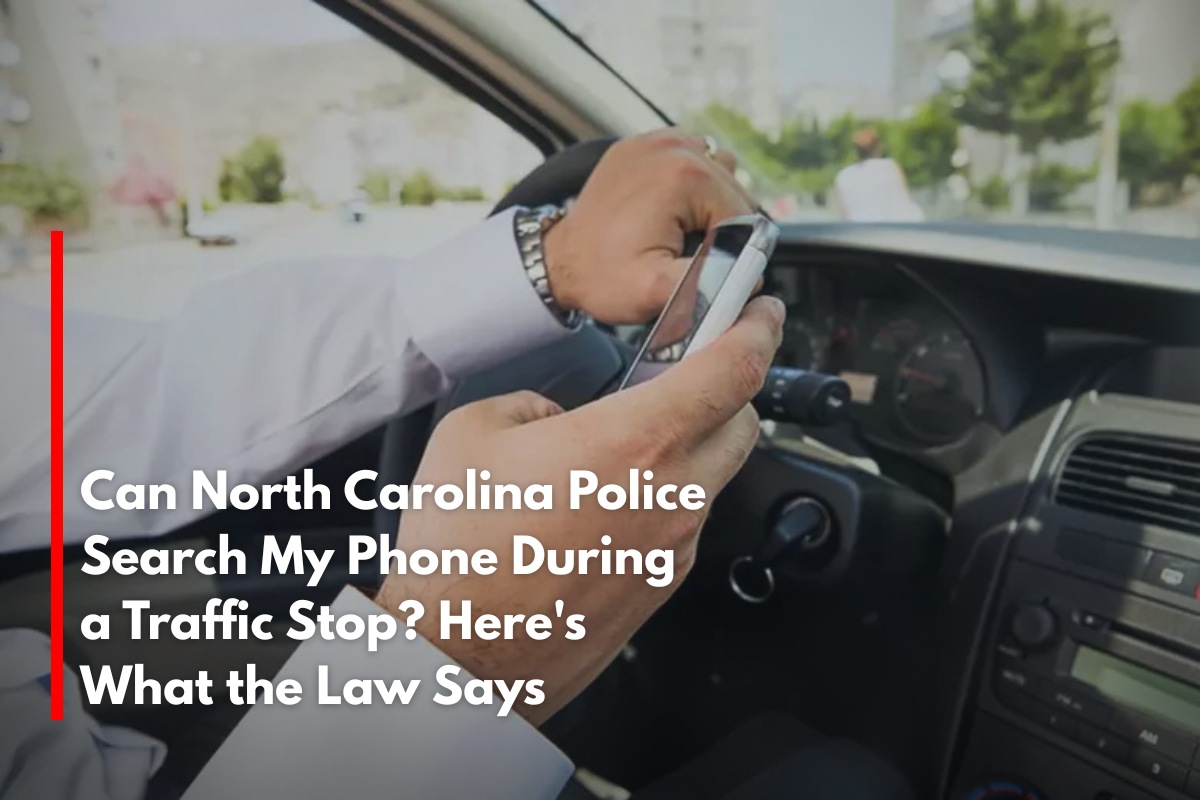With smartphones storing vast amounts of private data, many drivers in North Carolina wonder if police can legally search their phones during traffic stops. Technology has complicated police investigations, but the law aims to protect individual privacy under the Fourth Amendment. Here’s a detailed explanation of North Carolina’s legal stance on phone searches during traffic stops and arrests in 2025.
Fourth Amendment Protections and the Need for Warrants
The Fourth Amendment to the U.S. Constitution protects against unreasonable searches and seizures, requiring law enforcement to obtain a warrant based on probable cause before searching private property, including phones. North Carolina law echoes this protection under its state constitution.
In 2014, the U.S. Supreme Court ruled in the landmark case Riley v. California that police must obtain a warrant to search the contents of a cellphone, even after arresting the device’s owner. This decision emphasized that digital data on phones is fundamentally different from physical property and demands stronger privacy safeguards.
Phone Searches Are Not Automatic During Traffic Stops or Arrests
In North Carolina, police cannot legally search your cellphone during a traffic stop or even after arresting you without first obtaining a warrant. Even if they seize your phone, they generally must get judicial authorization to view text messages, photos, call logs, or other private data.
Police often ask for your consent to search your phone during traffic stops. Consent waives your right to require a warrant, but you have the absolute right to refuse this consent. Never feel pressured—refusing consent is your constitutional right, and officers must respect that.
Exceptions to the Warrant Requirement
There are limited exceptions where a warrantless search might be lawful:
Consent Searches: If you voluntarily agree to let police search your phone.
Exigent Circumstances: In rare emergency situations, such as an imminent threat to life or destruction of evidence, warrantless searches might be permitted.
Search Incident to Arrest: Police can search the immediate physical area under your control upon arrest, but this does not extend to digital data on phones without a warrant.
However, these exceptions are narrowly interpreted, and warrantless phone searches are typically illegal without consent or an emergency.
Unlocking Your Phone: Biometric and Password Protection
Police cannot generally force you to unlock your phone using biometrics (fingerprint or face recognition). The law treats biometric unlocks differently from passwords and passcodes, which might be considered testimonial evidence protected by the Fifth Amendment against self-incrimination. You should seek legal advice if asked to unlock your phone.
What to Do If Police Ask to Search Your Phone
Politely refuse consent to search your phone.
Do not unlock your phone or hand over your device without a warrant.
Remain calm and comply with lawful requests unrelated to phone searches.
Ask if you are free to leave.
Contact an attorney promptly if your phone is seized or searched unlawfully.
Challenging Illegal Searches
If police violate your Fourth Amendment rights by searching your phone without a warrant or valid consent, evidence obtained from such searches can often be suppressed, meaning it cannot be used against you in court. Attorneys will challenge unlawful searches to protect your rights.
Summary Table
| Situation | Police Authority on Phone Search |
|---|---|
| Traffic stop without warrant | Cannot legally search phone without warrant or consent |
| Arrest without warrant | Must obtain warrant to search phone data |
| Consent given | Police can search without warrant |
| Exigent circumstances | Limited exceptions for emergencies |
| Forced biometric unlock | Generally illegal; varies on legal interpretation |
North Carolina law strongly protects your privacy rights regarding cellphone searches during traffic stops and arrests. Police generally need a warrant to search your phone, and you have the right to refuse consent. Understanding your rights and calmly asserting them helps safeguard your privacy in interactions with law enforcement.
Sources
(https://dementaskew.com/search-warrant-north-carolina/)
(https://www.govtech.com/public-safety/can-police-search-your-phone-during-a-traffic-stop)
(https://www.garrettandwalker.com/can-police-force-you-to-unlock-your-phone-in-nc/)
(https://www.carolinaattorneys.com/blog/what-is-required-to-search/)
(https://www.capitalcriminaldefense.com/blog/2022/september/understanding-consent-to-search-how-to-protect-your-rights-in-nc/)











